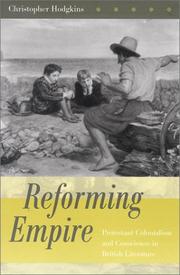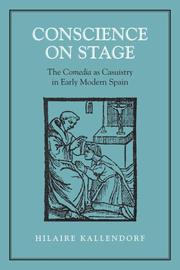| Listing 1 - 3 of 3 |
Sort by
|

ISBN: 0826262945 9780826262943 0826214312 9780826214317 Year: 2002 Publisher: Columbia University of Missouri Press
Abstract | Keywords | Export | Availability | Bookmark
 Loading...
Loading...Choose an application
- Reference Manager
- EndNote
- RefWorks (Direct export to RefWorks)
Book
ISBN: 1487512694 9781487512699 9781487501204 148750120X 9781487512705 1487512708 Year: 2017 Publisher: Toronto, Ont. University of Toronto Press
Abstract | Keywords | Export | Availability | Bookmark
 Loading...
Loading...Choose an application
- Reference Manager
- EndNote
- RefWorks (Direct export to RefWorks)
Examining works by well-known figures of the English Revolution, including John Milton, Oliver Cromwell, Margaret Fell Fox, Lucy Hutchinson, Thomas Hobbes, and King Charles I, Giuseppina Iacono Lobo presents the first comprehensive study of conscience during this crucial and turbulent period.
English literature --- Conscience in literature. --- History and criticism. --- Psychological study of literature --- anno 1500-1599 --- anno 1600-1699 --- Great Britain --- History --- Literature and the revolution.

ISBN: 1442684216 9781442684218 9780802092298 0802092292 Year: 2007 Publisher: Toronto University of Toronto Press
Abstract | Keywords | Export | Availability | Bookmark
 Loading...
Loading...Choose an application
- Reference Manager
- EndNote
- RefWorks (Direct export to RefWorks)
It is no accident that some variation of the question 'What should I do?' appears in over three-quarters of the comedic plays of the Spanish Golden Age. Casuistical dialogue was a concern, even an obsession, of Spanish playwrights during the seventeenth century, many of whom were educated by Jesuit casuists. Conscience on Stage is a study of casuistry or case morality as the foundation for a poetics of seventeenth-century Spanish comedias.Hilaire Kallendorf examines the Jesuit upbringing and casuistical education of major playwrights of the Spanish Golden Age, many of whom were also priests, and introduces the vocabulary of casuistry, as expressed in both confessors' manuals and in stage plays. Engaging issues of class, gender, and age to explore scenes of advice-giving and receiving, she demonstrates how the culture-specific construct of 'conscience' in early modern Spain can be recovered by means of a Foucauldian genealogy, which enlists the skills of philology at the service of a larger vision of the history of ideas. This study outlines and reiterates the relationship of theatre to casuistry, the Jesuit contributions to Spanish literary theory and practice, and the importance of casuistry for the study of early modern subjectivity.
Spanish drama (Comedy) --- Spanish drama --- Christianity in literature. --- Casuistry in literature. --- Casuistry. --- Conscience in literature. --- Confession in literature. --- Confession (Liturgy) --- Penitential celebrations --- Penitential rites --- Cases of conscience --- Christian ethics --- Ethics --- Scholasticism --- Applied ethics --- History and criticism. --- Catholic Church --- History
| Listing 1 - 3 of 3 |
Sort by
|

 Search
Search Feedback
Feedback About UniCat
About UniCat  Help
Help News
News